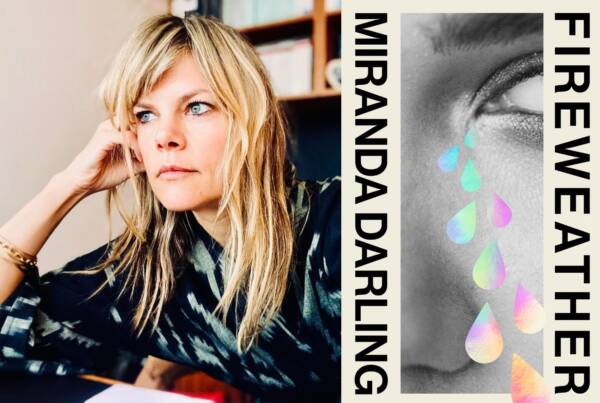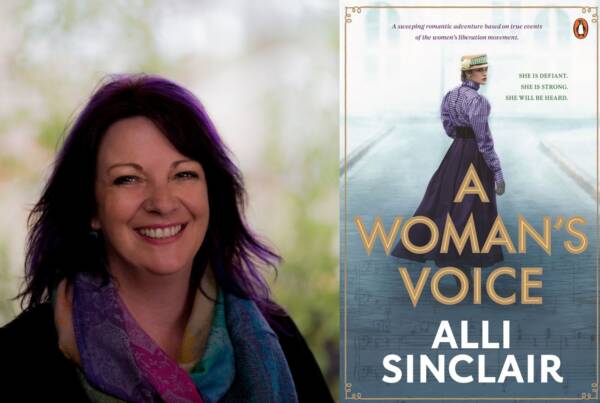Words by Kasey Edwards

Next to being thin, the most important thing a woman must be is nice.
That was one of the key ideas drummed into me when I was a girl.
I must never, under any circumstances, upset people.
It does not matter how many smiles I have to fake it, how many white lies I have to tell, how hard I have to bite my tongue or how many of my boundaries are trampled on, I. Must. Be. Nice.
‘Don’t be difficult’. ‘Honey attracts more flies than vinegar.’ ‘Do you really want to cause a scene?’. This is the backing track of girlhood. We’re told that if we can’t say anything nice then we shouldn’t say anything at all.
If we dared to stand up for ourselves or to do what was right rather than what was nice, we were quickly yanked back into line with admonishments such as ‘You don’t have to be rude.’
Or we were told that we were being ‘overdramatic’ or ‘oversensitive’. And this was said so often that we came to believe it.
We thought to ourselves: Maybe I did ‘take it the wrong way’? Or maybe I am ‘making something out of nothing’?
My conditioning to be nice to people is so strong it even overrides my maternal instinct to protect my children.
This horrifies me, but it’s true.
A barista said, ‘Give us a kiss.’ He was talking to my daughter, not to me.
I wanted to scream, ‘Don’t ask my daughter to kiss you! It’s creepy!’
I remember being presented with people’s cheeks when I was a kid and feeling the discomfort of such forced intimacy. But despite my own bad experiences from childhood, I didn’t intervene on my daughter’s behalf.
I stood there silently and watched as she hesitated, flinched, and then obliged.
The barista wasn’t being predatory, so I didn’t want to offend him or ‘cause a scene’.
I was being the people-pleasing Good Girl who prioritised being nice over the wishes of my daughter.
And I was wrong.
After the cafe incident, I vowed that the next time someone demands affection from one of my girls, to hell with being nice.
But then it happens again and I realise just how far I haven’t come in challenging my belief about being nice.
I’m walking along a street in the city with my girls when a woman’s hat blows off and tumbles along the footpath.
My daughter runs over, picks up the hat and holds it out to the woman. The woman takes the hat and then bends down to my daughter’s level.
I know what’s going to happen. The event unfolds before me in slow motion and I absolutely have the awareness and the time to intervene.
But I don’t. Yet again, I stand there silently as a stranger hugs my unwilling daughter.
Being ‘nice’ is so deeply threaded into the fabric of my being that I struggle to be or do otherwise.
This is even when I know that my silence and inaction make me complicit in behaviour and attitudes that I do not agree with.
By remaining silent and acquiescing to people’s desires for my daughter’s affection, I have effectively told my daughter ‘It’s okay to say no – except when it might hurt the other person’s feelings. Or embarrass me.’
I have taught her that she must ignore her own feelings and wishes and tailor her emotional responses to please others.
I am teaching her that she must be nice.
And here’s the contradiction: all of this is decidedly not nice to my daughter.
I am struck by the ripple effect of nice. On occasions like this, when I am being nice I am giving away my own power. But I’m also giving away my daughter’s.
And when nice makes me silent in the face of injustice or other shitty behaviour that I should call out, I am allowing power to be taken from other people too.
Just as it’s impossible to be liked by everyone, it’s not possible to be nice to everyone all the time and lead an authentic life.
Many women are raised to be peacekeepers and we feel it’s our responsibility to make sure no one feels discomfited or less than happy. We often do this by not picking a side.
But as I think about the impact of my ‘nice’ behaviour on my daughter, it strikes me that choosing ‘nice’ is still picking a side.
When I chose not to embarrass a stranger over my daughter’s wishes, I effectively chose the stranger’s side.
Every time someone oversteps our boundaries and we choose nice, we override our gut instinct to do what is right, because we do not want to cause offence.
We are often inadvertently choosing to support behaviour and beliefs that harm us. We are fuelling those who feel entitled to our bodily autonomy, our mental health, our time and our energy.
In rejecting nice, I am not saying that we should all be rude, insensitive or inconsiderate.
What I have learned is that the opposite of ‘nice’ is not being deliberately obnoxious or making people uncomfortable for the sake of it.
The opposite of being nice is being authentic.
Kasey Edwards in the author of Goodbye Good Girl, Hello Me. Published by Penguin Random House Australia, RRP $36.99.






